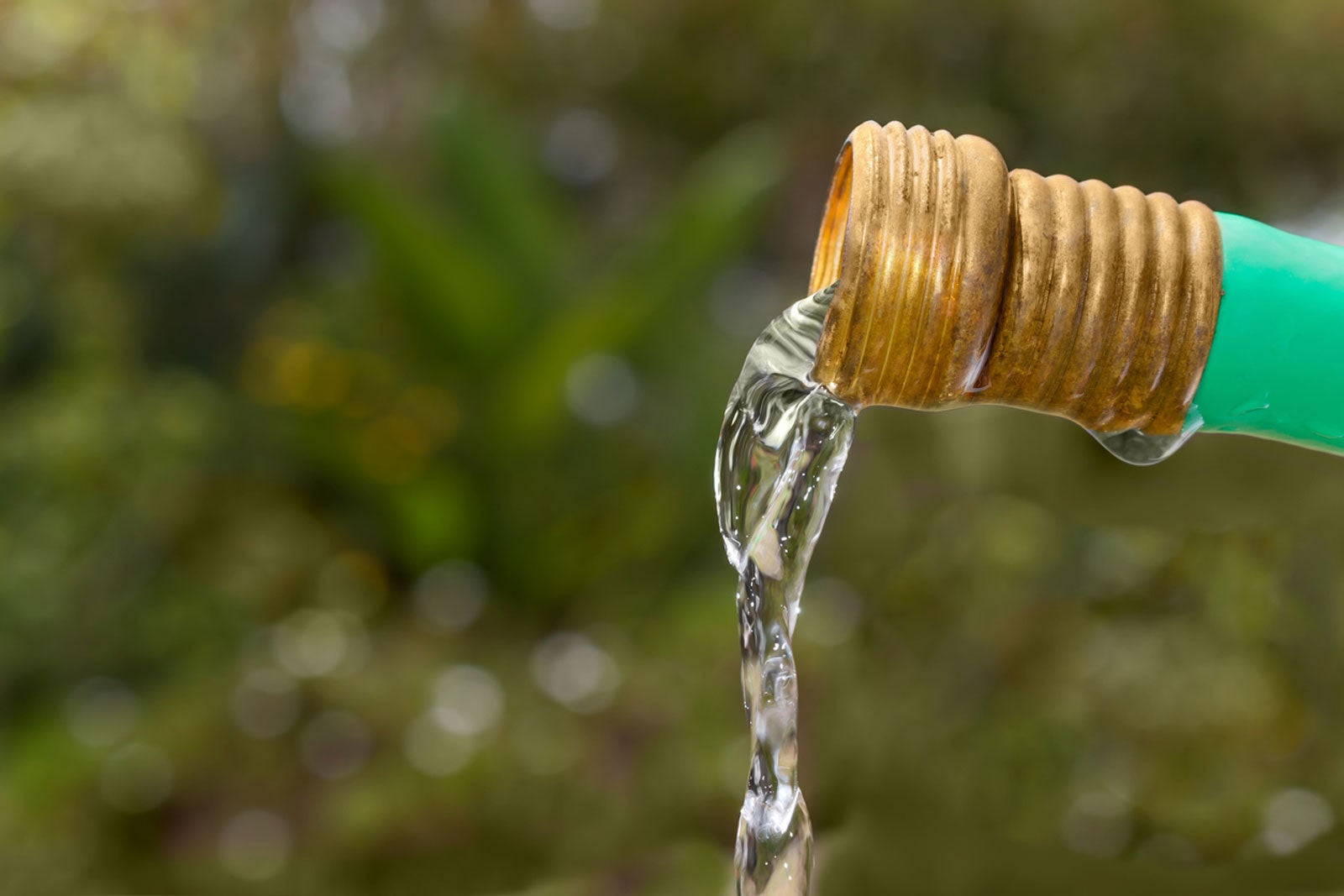Garden Hose Filtration Tips – How To Purify Garden Hose Water


It's a hot day and you are watering the garden. Taking a quick sip from the hose to quench your thirst seems tempting but can also be dangerous. The hose itself may give off gas chemicals, carry bacteria, and irrigation water can be filled with heavy metals. Filtering hose water can remove most of these problems and result in pure, safe fluid.
Do Garden Hoses Need to be Filtered?
Studies have shown over 2,000 chemicals are found in municipal U.S. water supplies. Most of these are benign, although a few do have some health implications and can even affect plants. This raises the question, “do garden hoses need to be filtered?” That depends on the use you have for the water and what your city puts into the supply.
In some regions, chemicals, like chlorine, are added to the local water. There can be other chemicals that result from fertilizer run-off, factory waste, and even treatment plant contamination. Adding chlorine laced water to compost piles has been shown to kill beneficial microorganisms.
Additionally, the water from the hose has to travel through rusty or contaminated pipes, which can carry toxins. The hose itself is likely made from a plastic that could contain BPAs, which are released when the hose gets warm in the sun.
The decision to install garden hose filtration is a personal one; however, do your own research to decide if exposure for your family and plants is worth the risk.
How to Purify Garden Hose Water
Some gardeners think that letting the water run for a few minutes or letting it off gas in containers is a sufficient way of purifying garden hose water. This will definitely help but does not remove heavy metals or certain other compounds.
Filtering hose water can remove up to half of the potentially damaging chemicals, is easy, and economical. Garden hose filtration systems are widely available and come with several features. Most only remove chlorine, but there are a few that do a better job at removing the more complex threats.
Sign up for the Gardening Know How newsletter today and receive a free copy of our e-book "How to Grow Delicious Tomatoes".
Garden Hose Filter Types
A quick browse on your favorite search engine will reveal numerous filters. Some of the easiest filters for purifying garden hose water are self-contained and simply screw onto the end of the hose. Some have a poly screen that must be changed, while others use granular activated charcoal.
Systems with carbon block filters have the ability to do more. They reduce chlorine and chloramine, reduce the presence of pesticides, heavy metals, and herbicides. Units with ion exchange technology can do even more. These claim to remove algae, bacteria, mold spores, lime scale, and many chemicals.
Using a hose that is not made of plastic and adding a filter can improve garden hose water taste and make it safer for use.

Bonnie Grant is a professional landscaper with a Certification in Urban Gardening. She has been gardening and writing for 15 years. A former professional chef, she has a passion for edible landscaping.